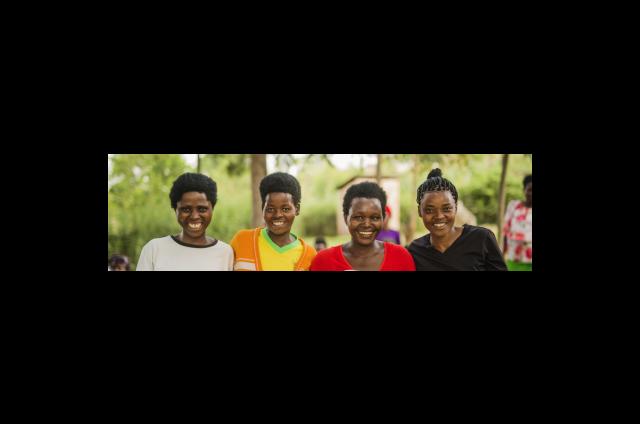Iraq 2018 Chart page
Goal 1: No Poverty
End poverty in all its forms everywhere.
28% of women participants report earning at least $1.90 a day
Target 1.1 eradicate extreme poverty (people living on less than $1.25 a day).
Women’s ability to earn money is not only a fundamental economic right but also critical to improving their and their family’s wellbeing. Through our programme, women gain knowledge in small business management and in a vocational skill (e.g. tailoring) that can help them to earn.
28% of women graduates of our programme in the Kurdistan Region of Iraq reported personal earnings of at least $1.90 a day*, compared to 24% at enrolment.
*$1.90 a day is the international extreme poverty line set by the World Bank.
Goal 1: No Poverty
End poverty in all its forms everywhere.
41% of women participants report saving a portion of their earnings
Target 1.5: By 2030, build the resilience of the poor and those in vulnerable situations and reduce their exposure and vulnerability to climate-related extreme events and other economic, social and environmental shocks and disasters.
Savings and assets are critical for women and households to cope with economic shocks, by providing a safety net for hard times. For women living in poverty, savings can be seen as an unaffordable luxury. In our programme, women learn how they can save even on a low income.
41% of graduates of our programme in the Kurdistan Region of Iraq reported saving a portion of their earnings, compared to 24% at enrolment.
Goal 2: Zero Hunger
End hunger, achieve food security and improved nutrition and promote sustainable agriculture
89% of women graduates report no food shortage in the last 4 weeks
Target 2.1 By 2030, end hunger and ensure access by all people, in particular the poor and people in vulnerable situations, including infants, to safe, nutritious and sufficient food all year round.
Food security is a key indicator of wellbeing and decreasing poverty. Food security is not just about having access to enough food but also nutritious food. Nutrition is a key part of our training, supporting women and their family’s health and wellbeing.
Upon graduating from our year-long programme, 89% of women reported having sufficient food in the house in the last four weeks, compared to 80% of women at enrolment.
Goal 3: Good Health and Wellbeing
Ensure healthy lives and promote well-being for all, at all ages.
37% of women participants report practising family planning
Target 3.7 By 2030, ensure access to sexual and reproductive health-care services, including family planning, information and education.
Women on our programme in the Kurdistan Region of Iraq reported sometimes or frequently practising family planning (37% at both enrolment and graduation).
Our interpretation of this data is that the use of contraceptives is generally low in the KRI. There are a lot of strong religious, cultural and social beliefs around the use of contraceptives and any significant changes to the use of contraceptives will take a long time. Our programme supports women to know their reproductive rights and women are sign-posted to places where they can access contraceptives if they choose to use them.
Goal 4: Quality Education
Ensure inclusive and equitable quality education and promote lifelong learning opportunities for all.
86% of school-aged girls (5-17 years) in school
TARGET 4.1: By 2030, ensure that all girls and boys complete free, equitable and quality primary and secondary education leading to relevant and effective learning outcomes.
Many of the women we serve have never completed primary school due to discrimination in their communities that undervalue girls and blocks them from opportunities. Increases in education for girls is a positive sign of change across generations.
Women graduates of our programme reported 86% of girls in school compared to 84% at enrolment.
Goal 5: Gender Equality
Achieve gender equality and empower all women and girls
4% INCREASE IN PERCEIVED SELF-EFFICACY OF WOMEN PARTICIPANTS
TARGET 5.1 By 2030, end all forms of discrimination against all women and girls everywhere.
Women gaining confidence is central to their empowerment, believing in themselves and their abilities to participate, engage and affect change for themselves, their facilities and communities. It is also a positive sign of recovery from trauma and isolation. It is extremely encouraging to see that women in Iraq had a high self-efficacy score at enrolment. Despite a lower percentage change, over half of women reported some score increase at graduation.
The perceived self-efficacy of the women on our programme in Iraq has increased on graduation, from 0.75 on average to 0.78 on a scale of 0-1.
Goal 5: Gender Equality
Achieve gender equality and empower all women and girls
94% of women report being involved in decisions about having more children
TARGET 5.6: By 2030, ensure universal access to sexual and reproductive health and reproductive rights as agreed in accordance with international standards
In the conservative communities where we work, women are denied influence over decision-making, including over their own bodies. Our data highlights an important shift in women’s voices being heard in decision-making which should also lead to positive changes in wellbeing and self-efficacy.
94% of women graduates of our programme in the Kurdistan Region of Iraq reported being involved in decisions about having more children compared to 80% at enrolment.
Goal 8: Good jobs and economic growth
Promote inclusive and sustainable economic growth, employment and decent work for all
12% of women report employment
TARGET 8.3 PROMOTE POLICIES TO SUPPORT JOB CREATION AND GROWING ENTERPRISES.
Women face multiple barriers in accessing employment. For both women and men, unemployment is very high in the Kurdistan Region of Iraq (KRI), with many working-aged adults unemployed. A recent survey by the International Organisation for Migration found that only 15% of working-aged women in the KRI are employed, including graduates and women seeking work. We believe that this data is a reflection of the wider context of unemployment in the KRI, especially for marginalised women.
Goal 16: Peace, Justice and Strong Institutions
Promote peaceful and inclusive societies for sustainable development, provide access to justice for all and build effective, accountable and inclusive institutions at all levels.
55% of women have spoken publicly against abuse of women
16.1 By 2030, significantly reduce all forms of violence and related death rates everywhere.
Conflict and poverty increase women’s vulnerability to all forms of violence, with violence acting as both a consequence and driver of discrimination with women surviving violence being more vulnerable to further abuse.
55% of graduates from our programme reported publicly speaking out against abuse of women compared to 39% at enrolment.
Goal 16: Peace, Justice and Strong Institutions
Promote peaceful and inclusive societies for sustainable development, provide access to justice for all and build effective, accountable and inclusive institutions at all levels.
58% of graduates are members of a group
16.7 By 2030, ensure responsive, inclusive, participatory and representative decision-making at all levels.
Women’s engagement with groups in their community demonstrates women’s increasing participation. Informal networks are key for providing social and economic support as well as group decision-making skills through elections of committees to manage the group.
The percentage of women who were a member of a group outside of our training had increased by the end of our year-long programme in the Kurdistan Region of Iraq, from 58% at graduation compared to 45% at enrolment.


